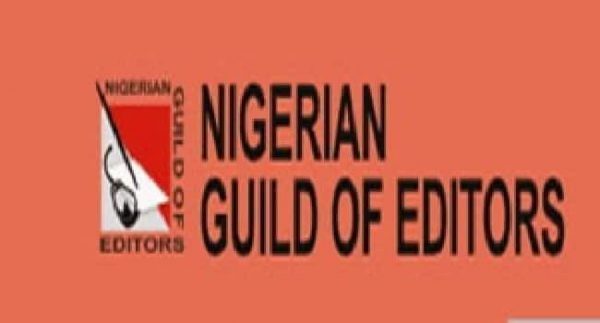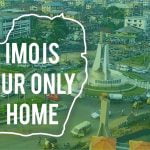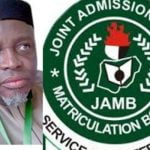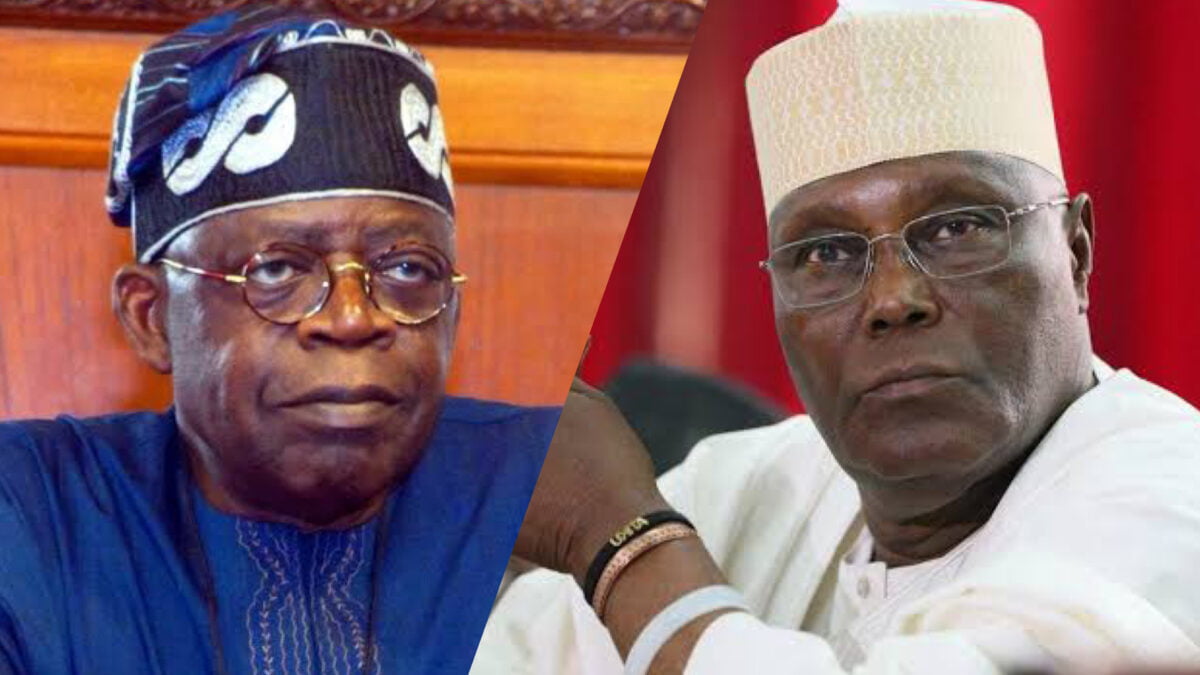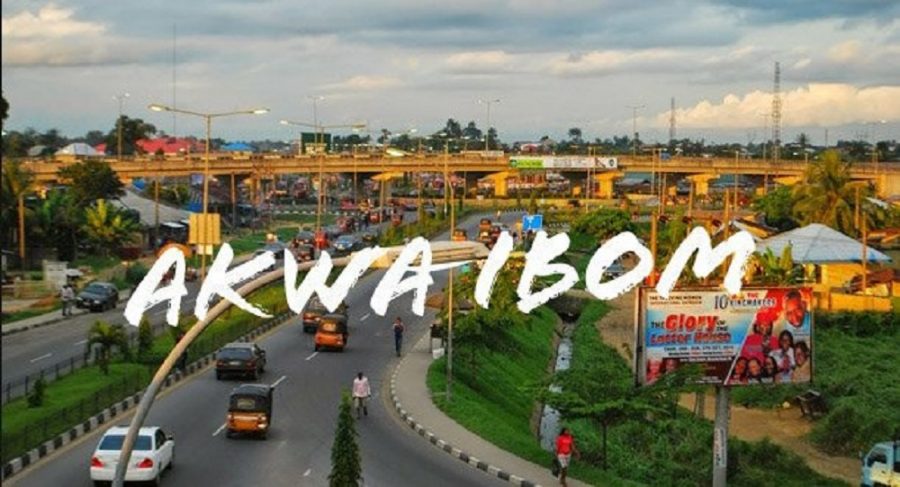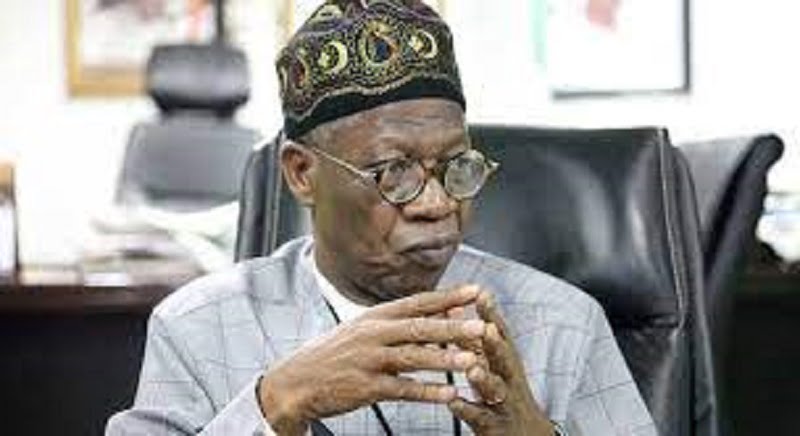The Nigerian Guild of Editors NGE has again weighed in on the security situation in the country, saying Nigeria cannot continue on its current trajectory.
President of the Guild, Mustapha Isah stated this Thursday in Abuja at the opening of the 17th All Nigeria Editors Conference ANEC organized by the Guild.
The conference had as its theme, “Media in times of crises: Resolving conflicts, achieving consensus”.
“There’s no doubting the fact that insecurity is one of the major challenges facing Nigeria today. The entire country is engulfed in one form of crisis or the other. Every day, front pages of newspapers are replete with headlines bordering on insurgency, banditry, kidnappings on the highways and schools, farmers/herders clashes, as well as the activities of known and unknown gunmen. Lives are being lost, the economy is bleeding, and scarce resources, which, ordinarily should have been used to address the nation’s infrastructure deficit, are being deployed to tackle the security challenges. The nation can’t continue like this.
“The media can’t afford to be aloof at this time of a national crisis. We have to be part of the solution to insecurity which has become an existential threat to this great nation”, he stated.
This came as the Inspector General of Police, IGP Usman Baba Alkali and the Director General State Services DGSS, Yusuf Magaji Bichi sought for more synergy with the media.
Solution finders
Mr Isah urged his colleagues to rise from the conference with a resolve to be part of the solution, adding that the Nigerian media has a rich history of rising up in times of national challenges.
“We played a major role in the fight against colonial rule. We were in the forefront in the fight for the restoration of democracy. That fight led to the death of some journalists, with others imprisoned and media houses shut. So, we are currently facing another national crisis and the media should play a significant role in finding solutions through our consensus building and agenda setting roles.
“I want to pose a few questions: Should the media play up the occasional successes of insurgents and bandits against our military? Shouldn’t the media deliberately give adequate publicity to the gains of our dedicated military personnel against the bad guys disturbing the peace of this nation?
“Should we give more attention to the voices of those calling for division or those calling for unity?
“I don’t have specific answers to these questions, and I do hope that this important conference will find the answers. But one thing I know is that terrorists and bandits need publicity to sustain their nefarious activities. Denying them that much needed oxygen will be beneficial to Nigeria”, he stated.
He also called on the relevant security agencies to urgently find the Vanguard National Assembly Correspondent, Tordue Henry Salem who has been missing for over one week.
“We are worried and his family is traumatized. No effort should be spared in locating his whereabouts”, he said.
The IGP who was represented by Force Public Relations Officer FPRO, CP Frank Mba noted that the point of convergence between the police and the media is more than the point of divergence.
“The only two professions that you find them running towards disaster or emergencies when the rest of the public are running away are security agencies and the media.
“I want to appeal to you in the spirit of the theme of this conference to continue to help us in not just reporting the crises but also going on to diagnose the crises; not just diagnosing the crises but going on to make critical suggestions on how the crises can be dealt with. And even when the crises or a situation of conflict probably manages to slip through your radar or our radar, do us a favour of carrying detailed post-mortem of those conflicts so that we can learn our lessons and move forward.
“Anambra election is around the corner. We will be appealing to distinguished members of the Guild to do all in their power to use the media to take some of the emerging crises, find consensus, tackle the issues of hate speeches, unfair media coverage of some of the contestants and support the Police and the Independent National Electoral Commission INEC in delivering a free, fair and credible election”, the IGP stated.
On his part, the DGSS, Yusuf Magaji Bichi who was represented by spokesman of the Service, Dr Peter Afunanya charged the media to call “unknown gunmen” by their names.
“We are confronted today by the menace and challenges of secession, banditry and kidnapping. Why for instance, will an editor continue to call or not call those who in destruction of lives and property by their names? Who are unknown gunmen? If you know them, and I think you should know who they are, call them by who they are. Call them by their names because like one of the speakers had earlier said, terrorism thrives on publicity”, he said.
The DGSS described the media as critical and strategic partners in ‘Project Nigeria’ and so all hands must be on deck to move Nigeria to its desired destination.
“If for instance we were the first in this meeting to suggest that the media should be regulated for sanity or professionalism, you would tell us that is gagging. Bit luckily for us, it came from the Newspaper Proprietors Association Association. We share the same sentiments with the Newspaper Proprietors Association of Nigeria NPAN that the media should be regulated.
“We call on you this morning, that as media handlers and people who set narratives and mobilize national unity, as people who manage public perception and opinions that we have to begin to have a rethink about the kinds of stories we put out, about the kinds of stories we allow.
“We understand you work in precarious situation whether there is divergence between you and owners of your platforms who may be politicians, but it is also time for us to work in good conscience and for common good”, he stated
Also speaking, Director General of he Nigeria Intelligence Agency NIA, Amb. Ahmed Rufai Abubakar who was represented by Mr Emma Anzaku noted that “security is the problem of all of us”.
“It is something that we need to collaborate. We must work together to ensure that there is peace and security. Sustainable economic growth and industrialization will require that we have peace and the only way we can achieve that is when we work together as security agencies and as members of the Fourth Estate of the Realm”, he stated.
Group Managing Director, Nigerian Petroleum Corporation NNPC Mallam Mele Kyari lamented how the continued wave of insecurity has impacted negatively on the oil and gas sector.
He alleged that most communities around oil and gas facilities are safe corridors for vandals.
“I can confirm to you that we will fix our refineries. We have started the process. Contractors have been mobilized and I promise they will be delivered soon. You will see what we will deliver before the end of the year.
“Insecurity is also impacting the oil and gas industry, our workers across the country are targets. Many have been kidnapped and ransom paid. We have issues of insecurity around our facets and facilities. We have come to discover that most of those communities around our facilities are communities of thieves. With all the recent security interventions, we have been able to achieve a fall of loss to stealing from 20 to ten percent”, he stated.
Executive Vice-Chairman and Chief Executive Officer (EVC/CEO) of the Nigerian Communications Commission NCC, Professor Umar Garba Danbatta in his goodwill message, advocated what he called the responsible use of the internet.
He said; “because most newspapers or broadcast media also have online versions, the NCC strongly advocates responsible use of the Internet to carry out personal, business and other professional activities in the way and manner as to promote unity, peaceful co-existence and cohesion in the society.”
Chairman of the occasion and Chief Executive Officer of MayFive Media Limited, Mr Ray Ekpu said Nigeria is faced with leaders who have no respect for the tenets of democracy.
“The most significant of our problems today is the lack of security for the lives and properties of our people. Our failure to secure the nation effectively and efficiently despite the commendable efforts of our security personnel is due to what I call The Seven Anomalies”, he stated.
Listing the anomalies, Mr Ekpu said Nigeria is a federation that is culturally, linguistically and traditionally heterogenous but unlike other federations such as United States, Canada, Australia and Germany, Nigeria is being managed in security matters as if it was a homogenous entity.
He said; “Anomaly number two: The Governor of a state is designated as the Chief Security Officer of the State. That is merely de jure. In real terms, the Commissioner of Police assigned to a state is the de facto Chief Security Officer who reports only to the Inspector General of Police in Abuja. The Governor is a figure head, pure and simple.
“Anomaly number three: In 23 states of the federation there is one form of local policing system or the other yet we refuse to accept the concept of State Police. The states that operate one form of local security outfit or the other are Kaduna, Sokoto, Kano, Zamfara, Borno, Yobe, Rivers, Osun, Benue, Katsina, Cross River, Enugu, Taraba, Adamawa, Anambra, Ondo, Ebonyi, Edo, Nasarawa, Plateau, Niger, Bauchi and Abia. So who is fooling whom?
“Anomaly number four: The APC panel headed by Governor of Kaduna State Mr Nasir El-Rufai toured all the zones of the country, gathered memoranda and received verbal presentations on various national issues including security. The overwhelming opinion of Nigerians was that to be able to police the country State Police was a desideratum. Now the APC government has refused to implement the report of a committee it set up which was headed by an APC Governor and comprised only APC members. So who is fooling whom?
“Anomaly number five: There is now a regional security outfit in the South West called Amotekun, in South East named Ebubeagu and a yet-to-be-named one in South South approved or recognised or condoned by the Federal Government. But there is no regional security outfit in either the North East, North West or North Central, three of the most serious and extreme theatres of conflict and violence in the country. So, are the three northern zones happy with the security situation in their zones?
“Anomaly number six: The police is the primary security outfit for the regular maintenance of law and order in the country. In cases of serious disturbance the mobile police is supposed to be invited to put down the riot or disturbance. But in Nigeria, the Army is now being used, more or less, as the regular law enforcement outfit to the discomfiture of the police. But the officers of the Army know the boundary of their duties. When they arrest a civilian for any offence they always hand over such suspects to the police for appropriate action.
*Anomaly number seven: It is estimated that more than one third of the funding for equipment and services of the Nigeria Police Force is borne by State Governments. Yet, the Federal Government claims that the State Governments are in no position to fund State Police, a claim that is highly untenable. The real truth, however, is that the Federal Government does not want security power bifurcated in the country. It wants to hold all the power in both hands. However, some of those who oppose State Police are of the view that State Governments may abuse their power over the police if State Police is approved.
“My view is that the media, civil society, lawyers and labour are capable of jointly checkmating through demonstrations and legal processes such potentially power drunk governors. Also, if we have State Police, there will be a balance of terror which will be a check on either side as it happened to the super powers during the cold war”, he stated.
President of the Nigeria Union of Journalists NUJ, Mr Chris Isiguzo said “the danger the media face today is between how we write our stories and how politicians from the various divides frame their positions. We should not allow ourselves to be used to deepen the fault-lines”.
The event also featured a virtual keynote presentation by Mr Dapo Olorunyomi, Publisher of Premium Times.

